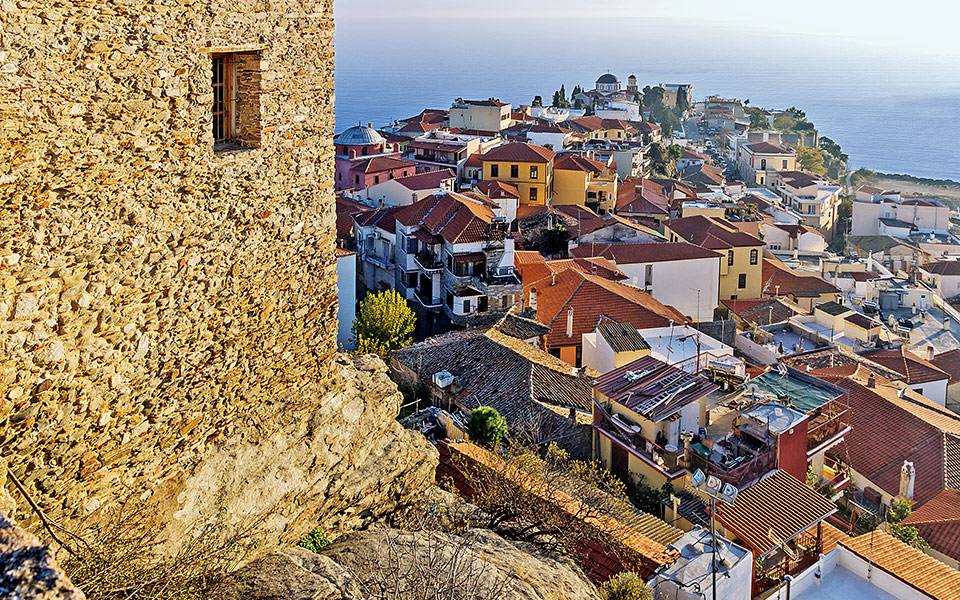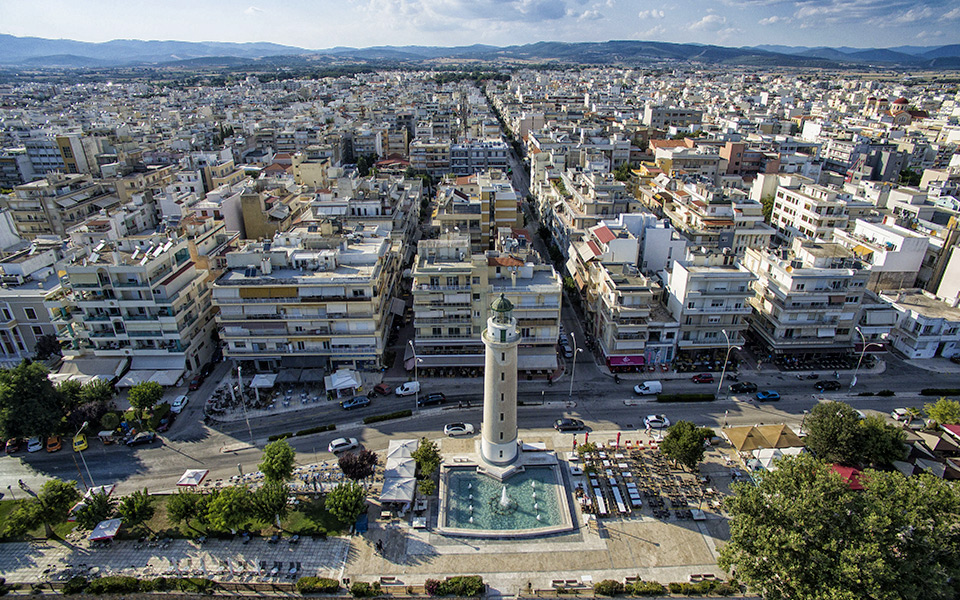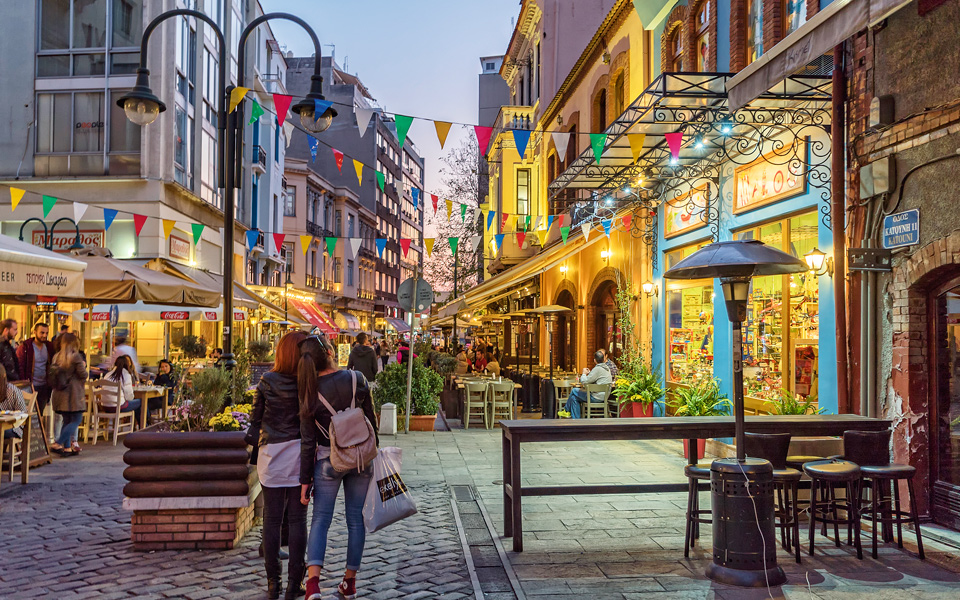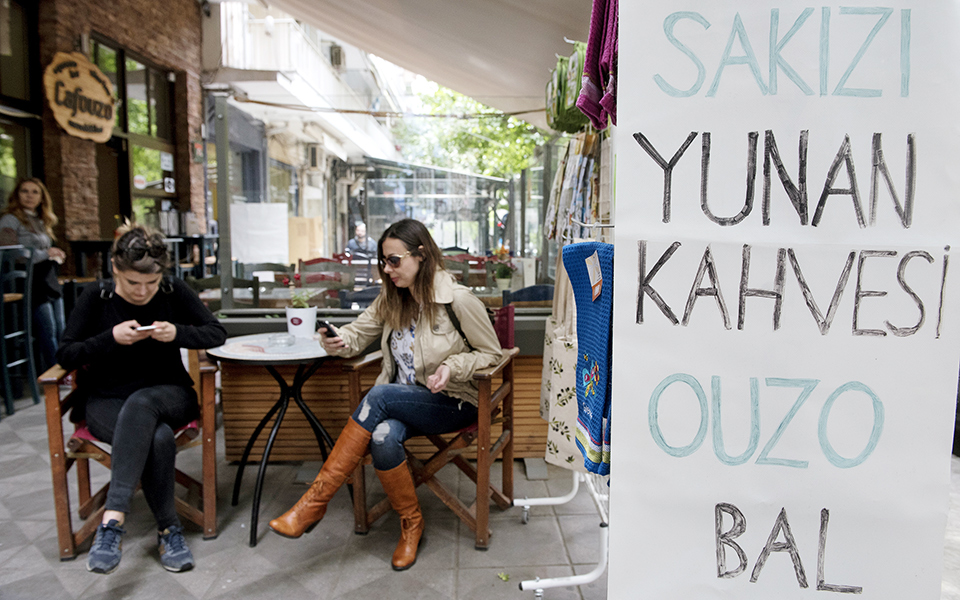Alexandroupoli Mayor Evangelos Lambakis has every reason to be content with the stream of Turks flocking to his city, especially on the weekends. And Vassilis K., the owner of a taverna in remote Didymoteicho, also revels in the healthy appetites of the country’s neighbors.
“We mostly get wealthy Turks who stay at five-star hotels, have fun, go shopping and are more than welcome,” says Lambakis, who estimates that what he calls “the safest city in Europe” sees around 40,000 Turkish visitors over the course of the year.
We met the taverna owner as we saw flames consume the roof of the Bayezid Mosque last month and asked him whether Turks come to the area to visit the historic site of worship, which is one of a kind in Europe. “Nah… We do get Turkish visitors but they come to eat, drink and have a good time. I asked a patron who comes a lot with large groups of friends and spends big whether he was planning to visit the mosque and he answered: ‘My friend, [President Recep Tayyip] Erdogan’s given us our fill of mosques and minarets. We’re here to have fun.’ And that is exactly what most of them do.”

© Shutterstock
This phenomenon is nothing new, as Turks have for years been crossing the border at Evros to “breathe in some Europe” in Thrace, Kavala, Thessaloniki and Halkidiki, among other parts. Now, however, after the failed coup in Turkey last summer and the crackdown on dissidents, secular Turks feel more vulnerable and see Greece as the nearest European haven.
It is no secret that dissident Turks are coming to Greece both legally and illegally, looking to buy homes and establish some contacts so they have somewhere to go if the situation at home deteriorates further.
“The middle and upper classes are starting to trickle out as quietly as possible,” said a member of the Muslim minority in Thrace with contacts among secular Turks, on the condition of anonymity. “A significant number of academics and people with a higher level of education see Greece as a solution in an emergency. This is why they are cultivating contacts with colleagues at Greek universities, in the hope that if something happens, they will be able to move and possibly find a job here, as many are very high-caliber scientists. The first step is getting a house.”

© Shutterstock
Information obtained by Kathimerini from the real estate sector points to increasing interest in apartments in the northern port city of Thessaloniki and in Halkidiki, which has become a very popular destination for Turkish tourists in the past few years.
“Fear that a neighbor may turn them in as a dissident or sympathizer has compelled many Turks with money to buy a house in Greece because they don’t know what tomorrow may hold,” says our Thracian friend.
At one luxury hotel in Alexandroupoli on the Carnival weekend, the only language that could be heard in the dining hall was Turkish.
“We work with Turks a lot and are always full on the weekends,” says the concierge. At night, the town’s tavernas buzz with Turks eating fish and drinking ouzo or ordering expensive wines.

© Pericles Merakos
The situation is much the same in Thessaloniki’s popular Ladadika district, where taverna owners have started to include Turkish on their menus, as wandering musicians belt out Turkish ballads.
“I know a young couple that ride over to Greece on a motorcycle all the time. As soon as they cross the border at Kipoi, the girl puts on a miniskirt, because over there it would be regarded as way too bold,” says the Thracian. The Turkish women who visit northern Greece for entertainment also rarely wear headscarves.
According to figures provided by the Turkish Consulate in Thessaloniki, the city welcomed 100,000 Turks in 2016, while many more thousands traveled to Kavala and the towns of Thrace, boosting the local economy by spending on all sorts of goods that are more expensive or harder to find back home, such as cosmetics, olive oil and even beef.
(This article was originally published in Greek on 24/04/17 by Kathimerini.gr)












